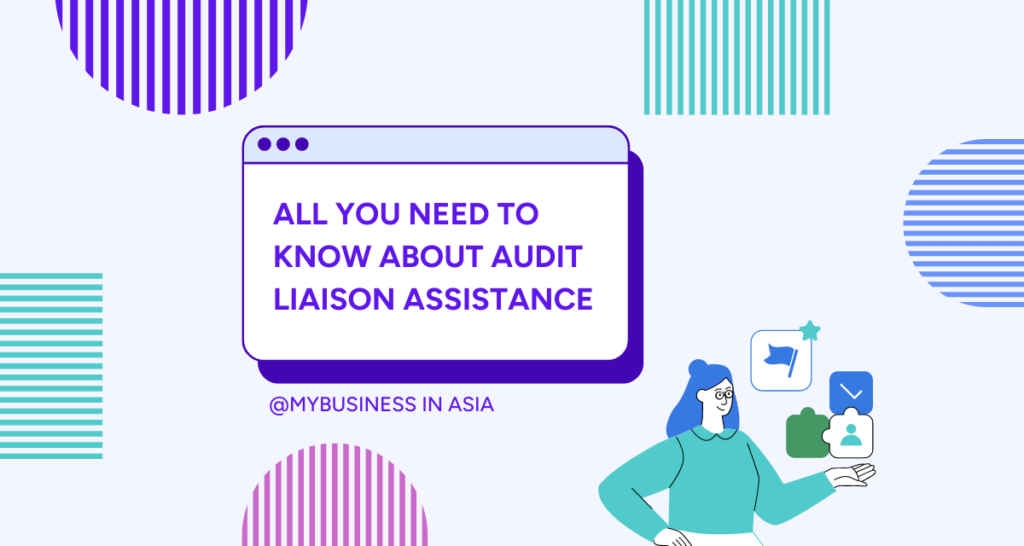
Audit of Financial Statements
According to ACRA, all companies are required to be audited unless they meet at least two of the following conditions which are assessed over the past two consecutive financial years:
- Total annual revenue is equal to or less than S$10 million;
- Total assets are equal to or less than S$10 million; or
- Has 50 or less employees
In case the company is part of a group, two of the three criteria must be met on a consolidated basis by the group for the past two years and this must be reviewed annually to ensure that it is still the case.
What is the Audit Liaison?
Audit Liaison is the process of communicating and coordinating with auditors during the audit of financial statements. The audit liaison has the responsibility of ensuring that the audit process runs smoothly and that all parties are informed in a timely manner.
They serve as the main point of contact for all queries and are bridge between the auditing team and the organization, while maintaining a positive relationship between them.
The responsibilities of an audit liaison are as follows:
- Providing access to necessary documentation and systems
- Prepare and organize documents that auditors will require such as financial statements or management accounts, internal control procedures and other relevant information which will aid the auditor gain better understanding of the company and its operations.
- Organizing the logistics of the audit and scheduling meetings between different parties as necessary
- Ensuring that findings from audit procedures are accurate.
- Attending to all queries the auditor may have or redirecting them to the right individual department within the organization.
- Liaising between the auditor and company secretary in regard to the minutes of meetings and resolutions passed during the financial year.
- Review and provide feedback on the audit report before finalization.
- Liaising with directors to ensure that signature of documents is done in a timely fashion.
- Following the completion of the audit, the liaison may also suggest and implement new internal controls to address any weakness identified during the audit.
Annual General Meeting and Filing of Annual Return
Once the audit has been completed, the company should hold its Annual General Meeting (AGM). At the AGM, the financial statements will be presented to the shareholders so that they can be informed of the financial position of the company.
The annual return is an electronic form filed with ACRA and provides important information to various stakeholders in order to allow them to make informed decisions.
- Listed companies – AGM must be held four months after the financial year end and annual return should be filed within five months after financial year end.
- Not Listed companies – AGM must be held within six months after the financial year end and annual return should be filed within seven months after financial year end.
The audit liaison is also responsible for ensuring that the audit is completed on time in order to avoid any penalty regarding the filing of the AGM and Annual Return.
In case of a delay in the auditing process, the audit liaison should inform directors of the organization of the consequences and apply for an extension if necessary. The extension is of 60 days and is required to be filed 14 working days before the deadline.
If you appreciate our content, you will also appreciate our other articles:
- Trends and View of the Startup Environment in Hong Kong
- Understand how the ONE Pass and how to apply for this special Pass in Singapore.
- Apply for an EP in Singapore and understand the new COMPASS framework.
- Learn everything about the Stamp Duty for shares and calculator in Singapore
- Making Sense of the Dividends Taxation and Regulations in Singapore



